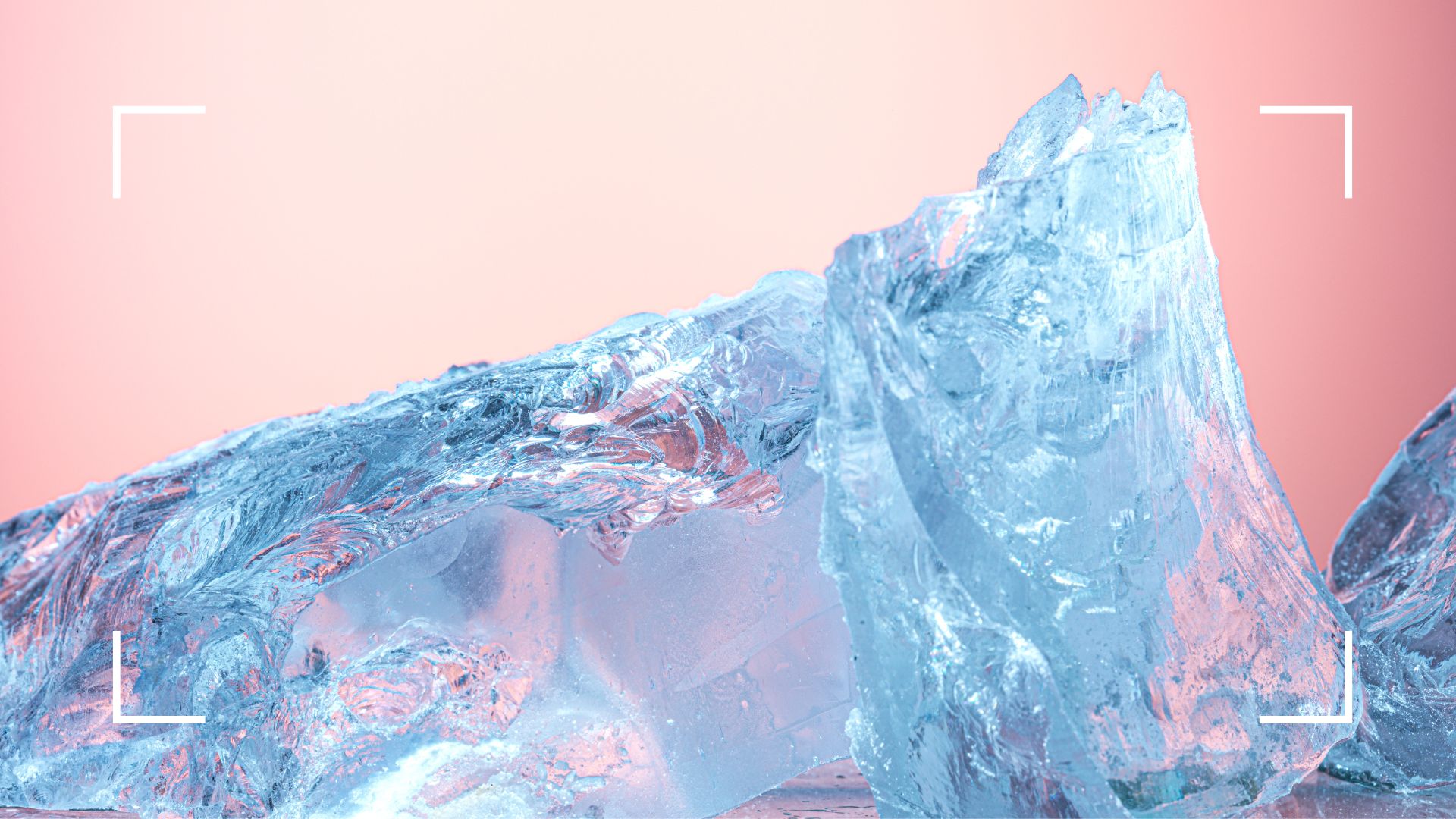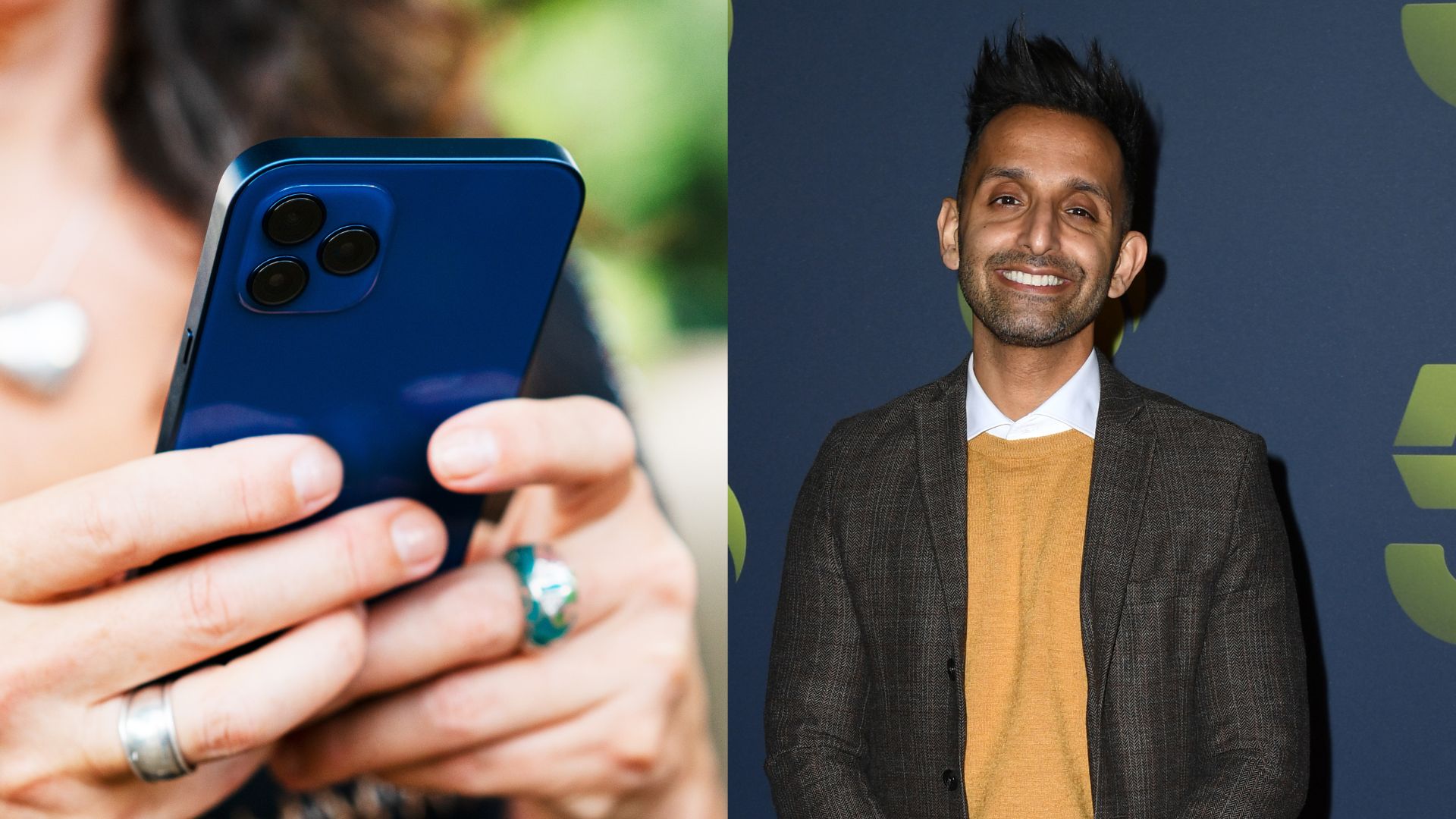Why do you crave ice when your iron is low? Doctor explains the real reason for this strange craving
Many people crave ice when they're low in iron, here's why, according to a doctor


It might be one of the more strange side effects of iron deficiency but many people actually crave ice when they’re low in iron - otherwise known as iron deficient anemia.
Without enough iron, we can’t produce a good number of red blood cells and without a good supply of red blood cells, we can’t move oxygen around the body. This leads to all kinds of side effects, including particular cravings.
It’s important to always take signs of a nutrient deficiency seriously, whether that’s new cravings or changes in how you feel, like tongue pain or fatigue. If you’re craving ice, this is what a doctor wants you to know about iron deficiency, the other signs to look out for, and when to see a doctor.
Why do you crave ice when iron is low?
One of the biggest side-effects of iron deficiency is fatigue and ice could help to increase alertness and clarity of thinking in people with the deficiency, explains Dr Luke Powles, a doctor specializing in preventative medicine and the associate clinical director at Bupa Health Clinics. “Other studies propose chewing ice may give them a mental boost,” he says.
The leading study on the subject, by The University of Pennslyvania, suggests that chewing ice leads to vascular changes that have a positive effect on the brain. One of these changes is the activation of the dive reflex, a natural response we all have when our body thinks we’re being submerged in water that increases blood flow to the brain. It’s also thought the ice could trigger the activation of the sympathetic nervous system, a network of nerves that produces the fight or flight response.
Both of these together would naturally increase alertness and the brain’s processing speed as it’s ‘shaken awake’ by the cold. It’s a fascinating discovery that has only been proven to occur in those with a lack of iron.
Is chewing ice bad for you?
Chewing ice may cause dental issues as it’s been proven to wear away the enamel on the teeth, promote cavities, and changes in the jaw over years, a report by Kawasaki Medical School explains. If you're experiencing pain when chewing, it's always worth increasing how often you go to the dentist.
Sign up for the woman&home newsletter
Sign up to our free daily email for the latest royal and entertainment news, interesting opinion, expert advice on styling and beauty trends, and no-nonsense guides to the health and wellness questions you want answered.
Outside of this, eating ice is not actively ‘bad’ for you in the sense that it’s not going to cause serious, long-term issues. To experience any major complications from eating ice, you’d have to be doing so for decades. The problems posed by severe anemia are much greater. They include heart and lung problems, according to extensive research by the likes of Dubai Medical College and the University of Verona.

What are the symptoms of an iron deficiency?
1. Fatigue
As mentioned, the most common symptom of iron deficiency is fatigue and a real lack of energy. “People can often feel more tired during the winter months and find it harder to get the energy to do things,” Dr Powles explains. Most typically, the lack of daylight and colder temperatures mean people are less likely to work out in winter and may be impacted by the symptoms of seasonal affectiveness disorder.
“However, if you’re iron deficient, you’ll likely feel extreme tiredness and weakness which doesn’t go away with rest,” he says.
2. Increased infections
Iron plays a key role in a healthy immune system, the doctor explains, so being low in iron is naturally going to impact how regularly you get the flu. “When red blood cells are low, it makes it harder to fight off infection. If you’re getting a lot of infections as well as other symptoms, it’s worth speaking to your doctor to see whether it’s due to low iron levels.”
3. Pale skin
If you have particularly pale skin and you’re also feeling tired all the time, it’s worth considering whether you could be anemic as well. “When your red blood cells become low in iron, they often become smaller and paler, making your skin paler too,” Dr Powles says.
When to see a doctor
“If you are worried that you’re iron deficient, you should see your doctor, who will ask about your lifestyle and medical history. They’ll also consider a simple blood test to find out the number of red blood cells you have,” the doctor says. “If the blood test shows that your red blood cell count is lower, iron tablets will be recommended to help replace the iron that your body is missing.”
They could also suggest that you change your diet as there are many foods to eat when you feel tired. These are naturally rich in iron and include dark green leafy vegetables, cereals, and bread with extra iron, meat, and dried fruit such as raisins.

Grace Walsh is woman&home's Health Channel Editor, working across the areas of fitness, nutrition, sleep, mental health, relationships, and sex. She is also a qualified fitness instructor. In 2025, she will be taking on her third marathon in Brighton, completing her first ultra marathon, and qualifying as a certified personal trainer and nutrition coach.
A digital journalist with over seven years experience as a writer and editor for UK publications, Grace has covered (almost) everything in the world of health and wellbeing with bylines in Cosmopolitan, Red, The i Paper, GoodtoKnow, and more.
-
 Kate Middleton's go-to bag for special occasions is a wedding season essential you'll reach for time and time again
Kate Middleton's go-to bag for special occasions is a wedding season essential you'll reach for time and time againThe Princess of Wales always reaches for the same elegant style of bag for formal events and it works beautifully for weddings.
By Emma Shacklock
-
 Dr Amir Khan reveals the 5 symptoms you should 'never' ignore, no matter how 'vague' they are
Dr Amir Khan reveals the 5 symptoms you should 'never' ignore, no matter how 'vague' they areDr Amir Khan, a GP who often appears on ITV's Lorraine, took to Instagram this week to share the symptoms he'll always take a second look at
By Grace Walsh